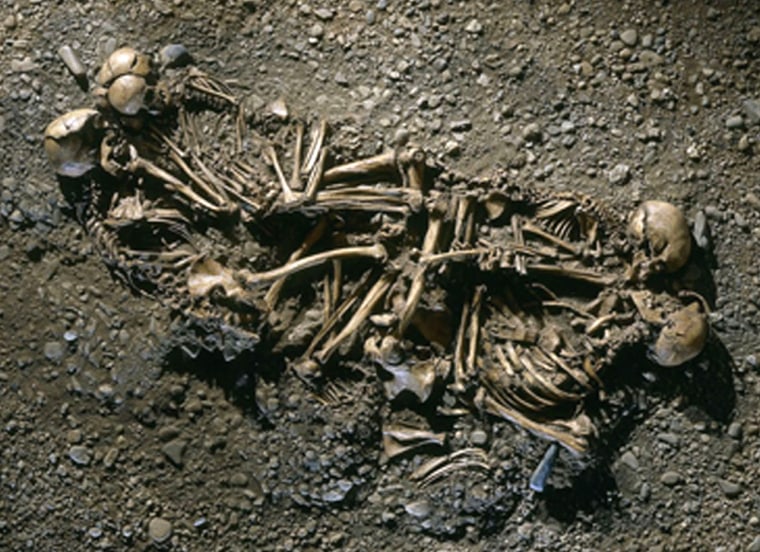
Ancient Family’s Violent Demise Unearthed in Grave Discovery

The discovery of a 4,600-year-old Stone Age burial site in Germany has provided new insights into the genetic relationships and social organization of ancient societies.
The burial site, near Eulau, Germany, contains the remains of a family of four, including parents and two sons. The positioning of the buried individuals, along with genetic analysis, suggests that the concept of the nuclear family was present in prehistoric Central Europe. The mother was curled up facing her sons, and the father was also on his side with their arms interlinked. This unity in death suggests a unity in life, although researchers caution that this does not establish the nuclear family as a universal model or the most ancient institution of human communities.

Genetic analysis also revealed that the females in the grave spent their childhoods in different regions from the males and children, indicating that they likely married into the family from different communities. This practice would have been important to avoid inbreeding and to forge kinship networks with other communities.
The researchers also found signs of defensive injuries on the remains, suggesting that the family may have been defending themselves against a violent raid involving stone axes and arrows at the time of their deaths.
Hits: 2



